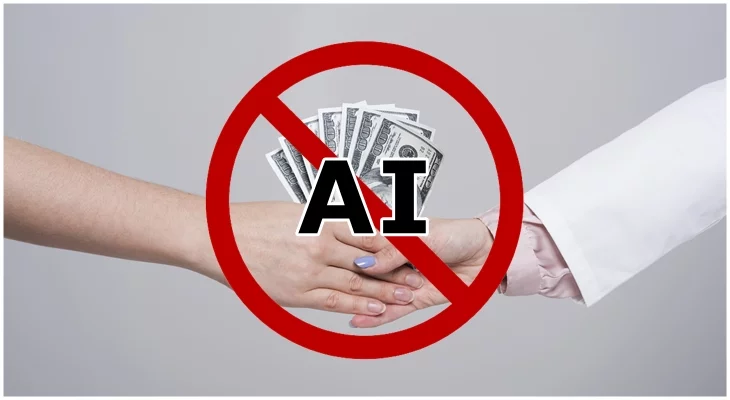Introduction
Artificial Intelligence as Anti-Corruption Tech has the potential to be beneficial. Its ability to handle large amounts of data, as well as its ability to spot anomalies or trends, is unrivaled. Some aspects of AI's application in society have skeptics. They also have concerns about a closely monitored society, putting privacy and individual liberty at risk.
Artificial Intelligence as Anti-Corruption Tech
Artificial intelligence allows machines to simulate human intelligence. It allows machines to solve complex problems. On the one hand, there are methods for handling a specific set of inputs by an algorithm. This is what drives the computation that determines or suggests a result. Also, machine learning (ML) is a subpart of this domain. In this, many methods of varying degrees of complexity are used to solve various problems.
Some of these methods need a dataset to 'train' the algorithm on how to deal with the data. The datasets used to train the algorithm are often the source of algorithmic bias. Artificial neural networks mimic the build of a human brain. Multiple computations are performed and sent between the network's nodes. Thus resulting in a level of complexity that is difficult to comprehend.
Some Basic Applications of AI
AI finds application in gadgets, cars, and consumer goods in our digitized societies. Based on your previous choices, algorithms determine what music you should listen to. Machines can also tell you which book to buy or whom to invite on a date. The quality of translation software is also improving.
In digitized economies with a certain level of e-government, transactions or interactions with authorities are digital. Technology is affecting more and more aspects of life. Automated decision-making systems are divisive. They find applications in social security programs. Ai is also present in the legal system, policing, insurance, and security.
AI Against Money Laundering
Money laundering is also detected using AI and machine learning. AI helps to predict tax evasion risk and track suspicious tenders or bids in public procurement. Transparency International UK is using artificial intelligence (AI) to automate public record searches. Thus improving its analytical capabilities.
Yet, AI's and automated decision-making system applications in society are still questionable. Questions about how to deal with biased algorithms. Also, our ability to challenge automated decisions and accountability when machines make decisions. These concerns remain unanswered. Nonetheless, AI-based processes will find application in a growing number of areas in the future. Thanks to their efficiency, clear neutrality, consistent performance, and cost savings.
Advantages of Artificial Intelligence as Anti-Corruption Tech
To Promote Integrity, AI is Being Used to Replace Faulty Systems
Another approach to using AI for anti-corruption is to redesign systems. Systems that were before prone to bribery or corruption. Bribery opportunities might get reduced over time. AI tools will improve the integrity, simplify procedures, and reduce points of interaction.
That is what the IBM research group in Kenya claims to have accomplished. Since 2014, they've been working with Kenya's government to improve the World Bank's Ease of Doing Business index.
Complex regulations, inefficiency, and bureaucrats feeling helpless in the face of the system were identified. They were viewed as the primary drivers for bribes. These bribes were typically used to speed up decision-making processes.
The IBM team worked on the technical side of the problem. They also looked at the problem from a variety of perspectives to improve the process. Kenya has risen from 136th to 61st place out of 189 countries on the list since then.
Future Expectations
Development organizations are upbeat about the advantages of new technologies. But they are also cautious about the disadvantages.
New, digitized procedures included in some designs cut jobs that were previously corruptible. Others take a more "direct" approach to uncovering previously hidden transactions or fraudsters.
In often cases, digitized interactions between society and its citizens serve as the foundation for AI applications. Rearranging business or governance processes to allow automation and AI to do their work will reduce the risk of fraud.
Using Artificial Intelligence to Investigate Corruption and Fraud
Artificial intelligence is the next step in anti-corruption. Because of its ability to uncover patterns in datasets that are too large for humans to handle. By using AI, humans can focus on specifics and follow up on suspected abuse, fraud, or corruption.
Mexico is an example of a country where AI alone may not be enough to win the war. The telecommunications industry is one of the many sectors of the Mexican economy that has improved. Once dominated by a single company, the telecom industry is now open to competition. This resulted in the cost of connectivity dropping dramatically.
The government is currently planning its largest investment to date. The goal is to have a 4G mobile connection available to more than 90% of the population by 2024. The affordable connection is critical in a society moving toward digital state services.
The country's AI strategy is the next step. The next national AI strategy will include many initiatives. One of them is pursuing AI-based solutions to reduce the cost of government services. Also, implementing AI-driven smart procurement. In a nutshell, Mexico wants to be one of the first ten countries in the world to install a national AI policy.
Digital Reports on Development Aid
The corruption and fraud in donor holdings are one issue. Here new technology could help speed up investigations. It could make suspicious occurrences more visible. The International Aid Transparency Initiative is a long-standing concept adopted by many countries.
For AI technologies to be effective, transactions and reporting should work hand in hand. Projects spanning many countries, including many languages, currencies, or reporting methods. It may need cleaning before an AI program can check effectively enough to detect anomalies with precision.
Challenges to Artificial Intelligence as Anti-Corruption Tech
The Necessity for Large Scale Digitization
Accessible, digitized data is a need for deploying AI. Whether to track and uncover corruption or to renew government service systems. Several countries continue to rely on paper-based systems. Private businesses offer to digitize registries or services. Some projects are based on telecom data extracts, while others rely on satellite imagery analysis.
Mobile money or digital transaction make transactions easier. They also make them safer and easier to track. The information gathered can then be used for analysis.
Within The Context of 'Information Capitalism,' There Are Privacy Concerns
Individual transaction data and call records are both sensitive data. Even more so is biometric identification information. In some countries, public trust in private companies may outnumber public trust in the government to keep such information safe and secure.
But, private companies control vast amounts of critical data in developing countries is a source of concern. Information is power, and information capitalism is a term that has been coined to describe what is going on.
Local Ownership of Data and Projects Requires Education
Supporting education and research in developing countries is motivated by promoting local ownership of data and projects. Google, IBM, Microsoft, and Facebook, among other major players in the field. They are promoting projects and developing solutions in developing countries. Some companies make it clear that they want to develop viable projects. In contrast, others do so as part of their social responsibility programs.
Concerns About Biased Algorithmic Outcomes Continue to Exist
There are reasons for concern about biased outcomes about AI's application in governance and decision-making. Unwanted side effects of these decision-making systems might be because of bias in the data used to train the AI or in the algorithm's design. Several organizations have ethical guidelines for the design and implementation of AI trust.
The European Union also has involvement in it. It emphasizes the importance of lawfulness, ethics, and robustness in a trustworthy AI. If technology advances faster than legislation, challenges arise. It is because it can operate in unregulated, global settings.
Conclusion
The use of AI in governance and decision-making raises concerns about biased outcomes. Bias in the data or in the algorithm's architecture could cause negative side effects in these decision-making systems.
It's important to remember that technology can't replace a well-thought-out, evidence-based anti-corruption strategy. By adding new tools to the mix, simply extends the reach of before-tested tactics.
While Artificial Intelligence as an Anti-Corruption Tool is exciting, still many hurdles exist. Other methods to promote social accountability need consideration. These can be citizen report cards and community scorecards, etc.
With further advancements in Machine Learning and AI, fighting corruption would be much easier.





